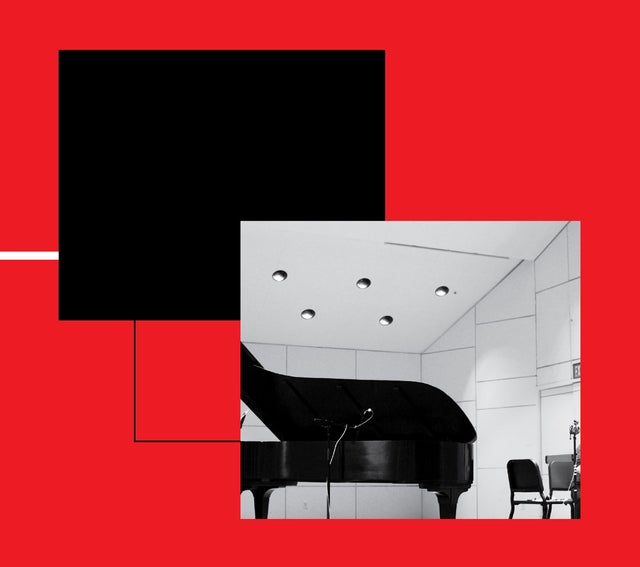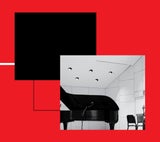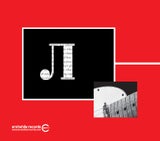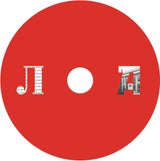- Michael Pisaro-Liu
- >
- Christian Wolff/Michael Pisaro - Looking Around (CD)
Christian Wolff/Michael Pisaro - Looking Around (CD)
SKU:
$14.00
$14.00
Unavailable
per item
Erstwhile 080
A fascinating collaboration from two minimalist/Wandelweiser figures: Christian Wolff on prepared piano, whistles, and stones, and Michael Pisaro on guitar, harmonica and stones, recording together in Caimbridge, MA for two extended works, "Looking East" and "Looking West". Six-panel digipak, photos by Seth Torres and Michael Pisaro, design by Yuko Zama.
For lossless (16/44) files, go to this page.
A fascinating collaboration from two minimalist/Wandelweiser figures: Christian Wolff on prepared piano, whistles, and stones, and Michael Pisaro on guitar, harmonica and stones, recording together in Caimbridge, MA for two extended works, "Looking East" and "Looking West". Six-panel digipak, photos by Seth Torres and Michael Pisaro, design by Yuko Zama.
For lossless (16/44) files, go to this page.
|
TRACK LIST
1. Looking East (28:10) 2. Looking West (28:10) (released February 29, 2016) CREDITS
Christian Wolff: prepared piano, whistles, stones Michael Pisaro: electric guitar, harmonica, stones recorded by Seth Torres at Paine Hall, Harvard University, Cambridge, MA on November 4, 2014 photos by Seth Torres (covers) and Michael Pisaro (inside) design by Yuko Zama |
REVIEWS
Bill Meyer, Dusted Look around and what do you find? It all depends on what you’re looking for. Christian Wolff has already found a few things in his long life. Aged 80 when he recorded this improvisational encounter with Michael Pisaro in 2014, Wolff can look back on a long life of extraordinary encounters and experiences, including close associations with John Cage, Earle Brown and Merce Cunningham; a stretch teaching the classics at Harvard, and another teaching music at Dartmouth; recording with AMM and being recorded by Sonic Youth. What might he be seeking when he improvises with a fellow composer? Wolff and Pisaro, who is a quarter century younger, both use texts in their compositions, and each employs composition to set a stage for others to make decisions rather than prescribe action down to the last detail. This open attitude gives them plenty of common ground, but also leaves the listener with little ground for guesswork. What might such a collaboration sound like? It’s also worth noting who put this record out. First-time duo encounters constitute a significant chunk of the Erstwhile Records discography, and while the label was once strongly associated with electro-acoustic improvisation, nowadays many of its releases are contemporary musique concrète and manipulated field recordings. Wolff plays a prepared grand piano, whistles and stones; Pisaro brought an electric guitar, a harmonica and more stones. If there are any post-performance interventions, they don’t bring attention to themselves. So while this record fits into that tradition of first encounters, it doesn’t sound much like anything else on the label these days. It does, however, express a shared aesthetic of thoughtful receptivity. Pisaro and Wolff don’t improvise in order to sound like they are improvising. Improvisation is a heuristic endeavor here, a means of testing and understanding something, much like AMM. It is a methodology that opens up the music to whatever the moment and situation bring. It allows Wolff to propose boiled-down Baroque figures mixed with gamelan-like clatter, and for Pisaro to test terse, repetitive tugs at the strings and arcing lines that seem to vibrate from within Wolff’s matrix of whole and distressed piano notes. Each man plays patiently, sticking with gestures long enough to measure them and mull over their merits. They don’t merely respond to each other, they offer suggestions for how to complete each other’s ideas and then move past them. Thus while this music doesn’t sound at all futuristic, it’s as much about finding that transition to what comes next as it is about what the two musicians are playing together. Leah B. Levinson, Tiny Mix Tapes It feels to me that, in the arts, collaboration and communion will thrive. In an essay called “The Friend,” Italian philosopher Agamben explores the implications of friendship: “What is friendship, in effect, if not a proximity such that it is impossible to make for oneself either a representation or a concept of it? […] The friend is not another I, but an otherness immanent in self-ness, a becoming other of the self.” He comes to understand that two who are friends can never understand one another outside of their sharing of the “experience of friendship,” and much in the same way, a friendship can’t be interpreted by one who is outside of it because “friendship is neither a property nor a quality of a subject.” If collaboration and cooperation is going to resemble friendship, voices will meld together, they will contort each other’s speech, amplify and support one another, and in all those acts become indistinguishable. While on tour this summer, one of my bandmates played Frankie Cosmos’s Next Thing for about a quarter of the time she spent driving. All of us had already heard and liked the album (and some of us quickly grew sick of it in this time), but it was then that I personally met the album where it was at. Among the intimate bundle of friends that were my tour-mates, I felt connected to the content of Next Thing. Greta Kline — singer, guitarist, and songwriter behind Frankie Cosmos — writes lyrics that are at once confessional and self-distancing. There’s nothing particularly revolutionary in the plain-speech, journal-entry-style musings that float atop the band, but there is quite a lot that can be said about the brevity and clarity of Kline’s epiphanies as they heed the lessons of terse, vulnerable writing by Frank O’Hara, Eileen Myles, Ted Berrigan, Kimya Dawson, Paul Baribeau, and the like. |




